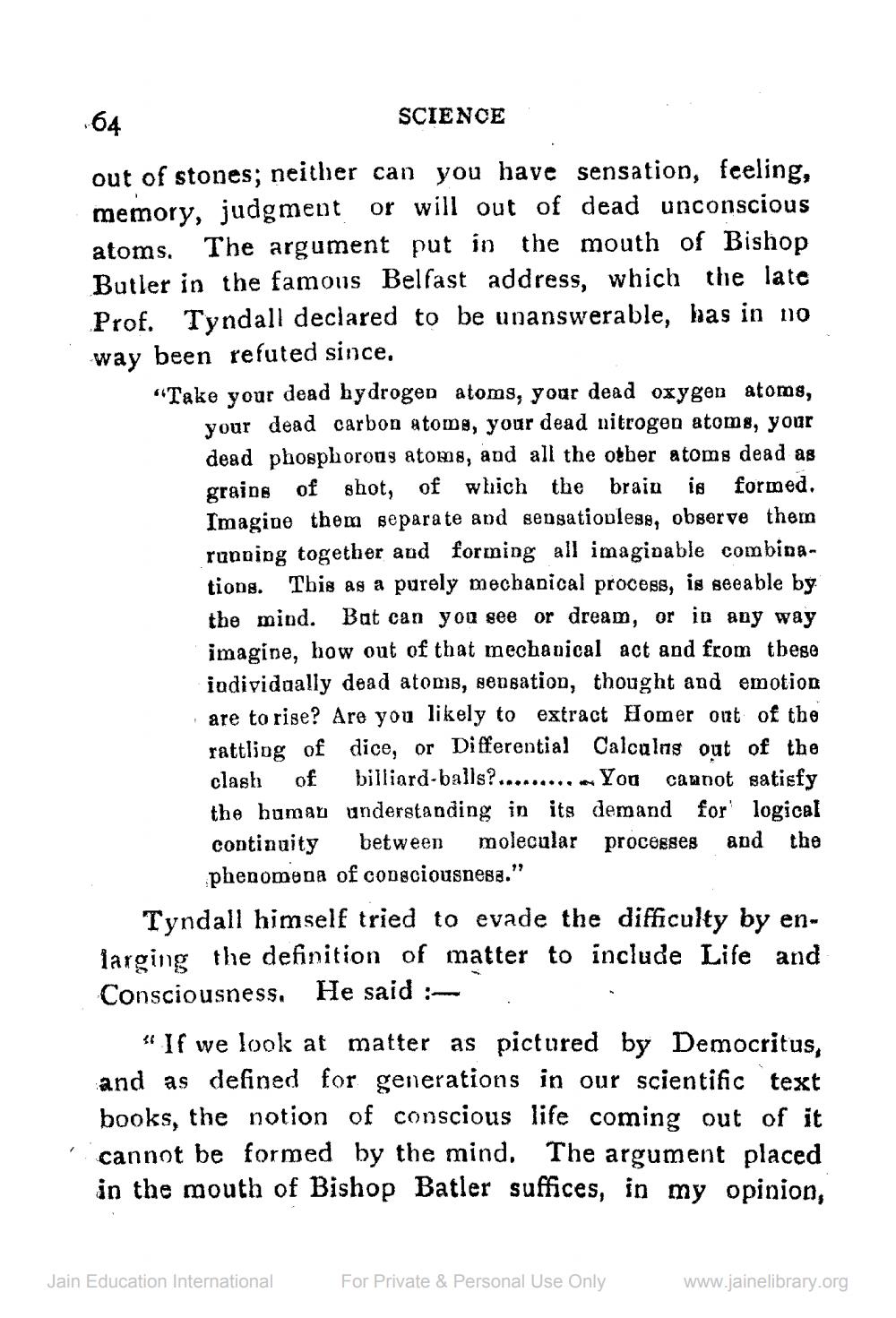________________
SCIENCE
out of stones; neither can you have sensation, feeling, memory, judgment or will out of dead unconscious atoms. The argument put in the mouth of Bishop Butler in the famous Belfast address, which the late Prof. Tyndall declared to be unanswerable, has in 110 way been refuted since, "Take your dead hydrogen atoms, your dead oxygen atoms,
your dead carbon atoms, your dead nitrogen atoms, your dead phosphorous atoms, and all the other atoms dead as grains of shot, of which the brain is formed. Imagine them separate and sensationless, observe them running together and forming all imaginable combinationg. This as a purely mechanical process, is seeable by the mind. Bat can you see or dream, or in any way imagine, how out of that mechanical act and from tbese individually dead atoms, sensation, thought and emotion are to rise? Are you likely to extract Homer ont of the rattling of dice, or Differential Calculas out of the clash of billiard-balls?......... You cannot satiefy the human understanding in its demand for logical continuity between molecular proceeses and the
phenomena of consciousness." Tyndall himself tried to evade the difficulty by enlarging the definition of matter to include Life and Consciousness. He said :-
.
* If we look at matter as pictured by Democritus, and as defined for generations in our scientific text books, the notion of conscious life coming out of it cannot be formed by the mind. The argument placed in the mouth of Bishop Batler suffices, in my opinion,
Jain Education International
For Private & Personal Use Only
www.jainelibrary.org




